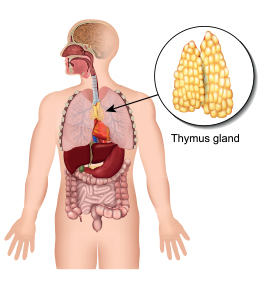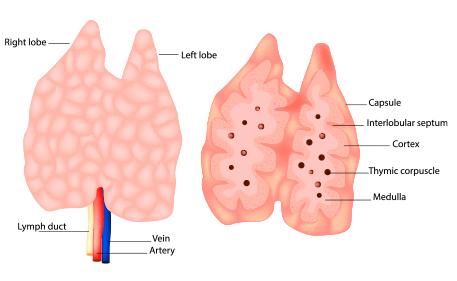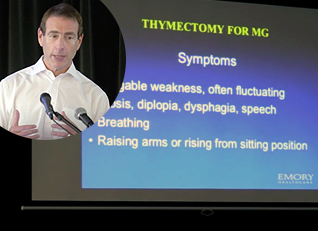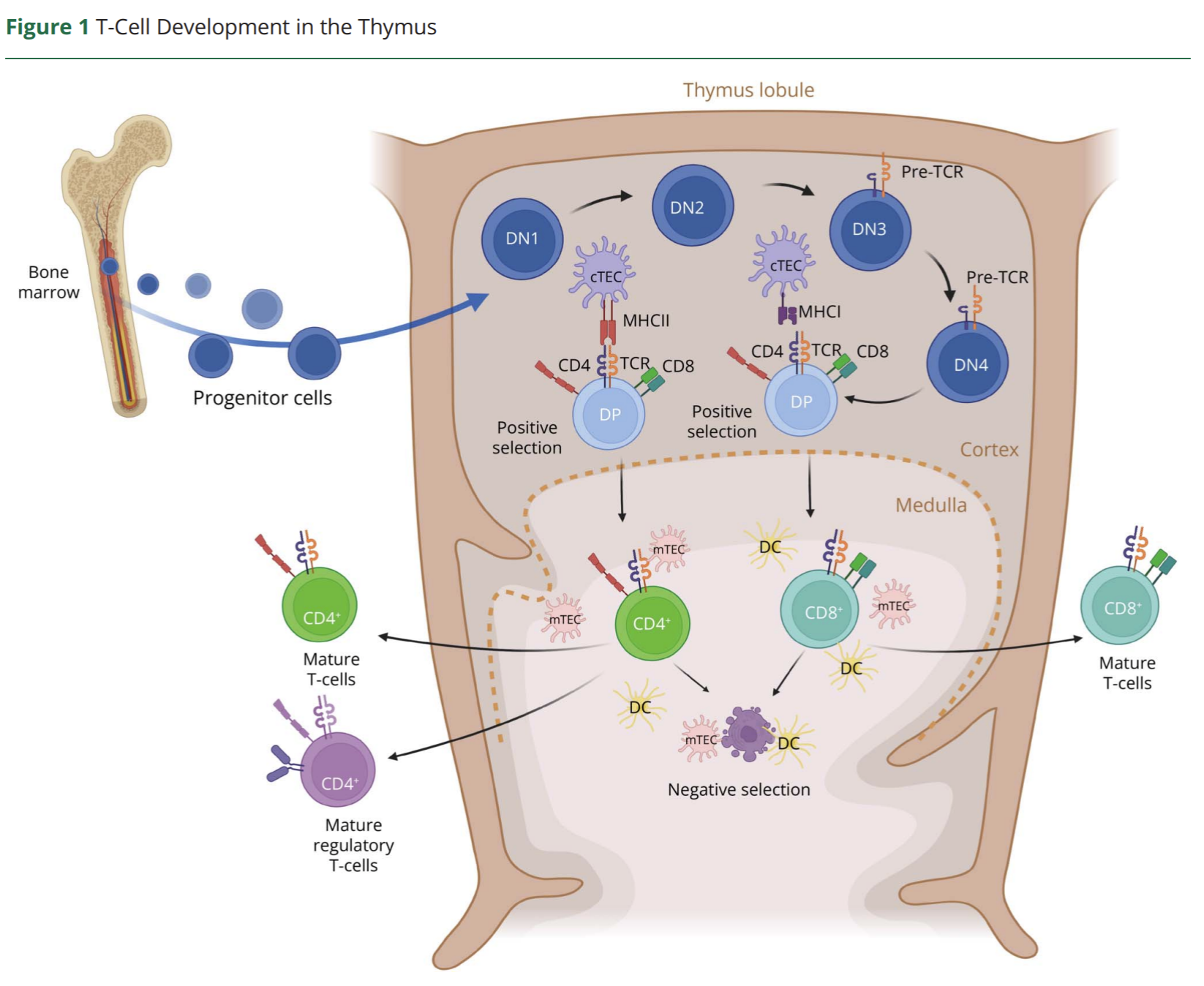The following resource center combines the latest information and guidance concerning thymectomy, a highly effective surgical treatment for myasthenia gravis.
Thymectomy is the surgical removal of the thymus gland. The thymus gland is located in the middle of your upper chest and lies over your heart. This gland plays a role in the production of antibodies. While it is most active in early childhood, the thymus gland usually shrinks over time and by early adulthood is believed to no longer function. But sometimes, the thymus gland remains large and continues to be active in antibody production.
Effectiveness of this surgical procedure varies with each patient. It is removed in an effort to improve the weakness caused by MG, and to remove a thymoma, a tumor (usually benign or in some cases malignant) on the thymus that presents itself in only 10% of patients. Every person diagnosed with MG should have a CT scan of the chest to check for a tumor. A thymectomy is usually not used to treat active disease but rather it is believed to improve long-term outcome. Results may not be seen for one to two years or more after the thymectomy.


The neurological goals of a thymectomy include: Significant improvement in the patient’s weakness due to myasthenia Reduction in the medications being employed Ideally a permanent remission (complete elimination of all weakness and off all medications).










